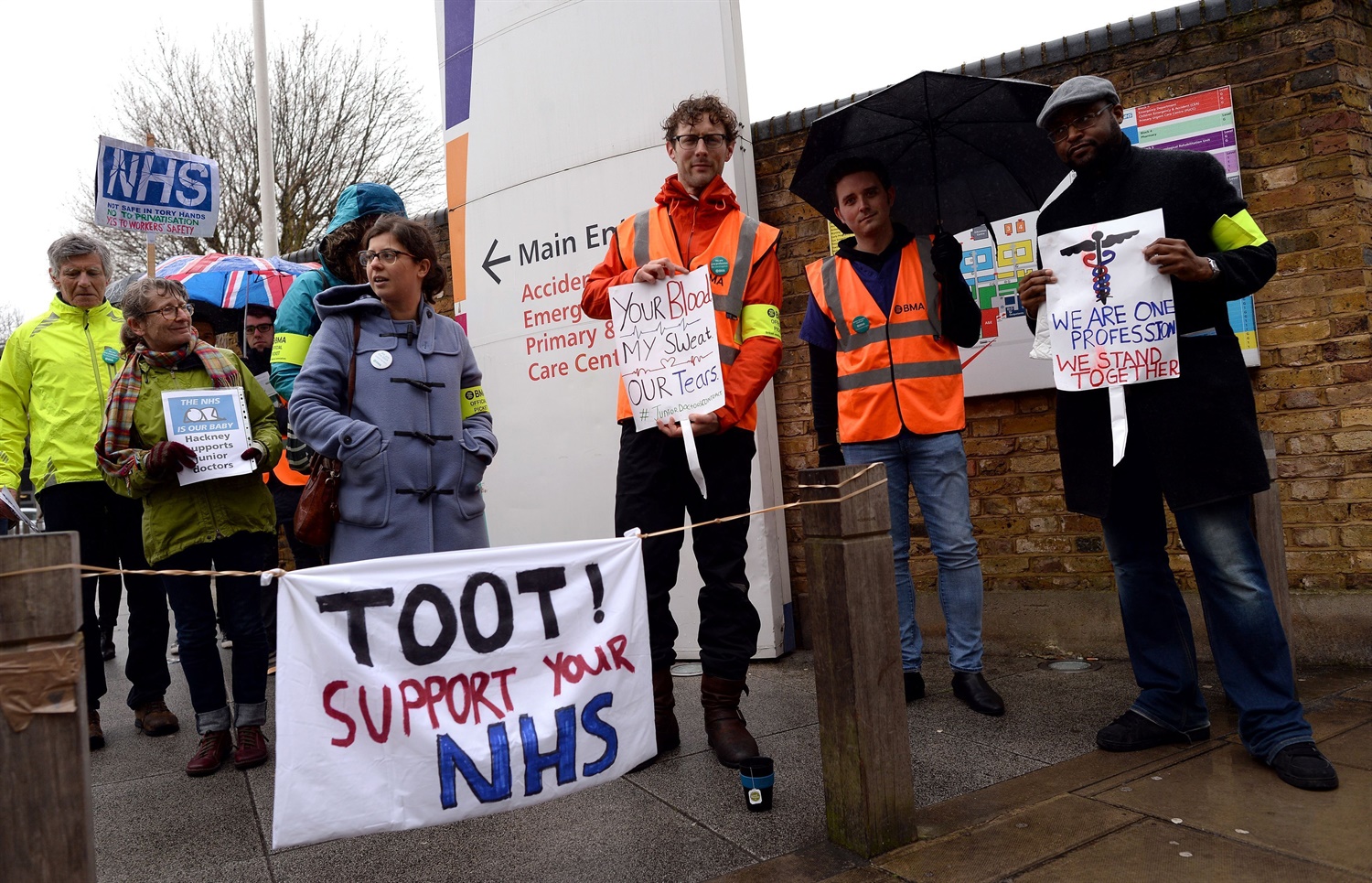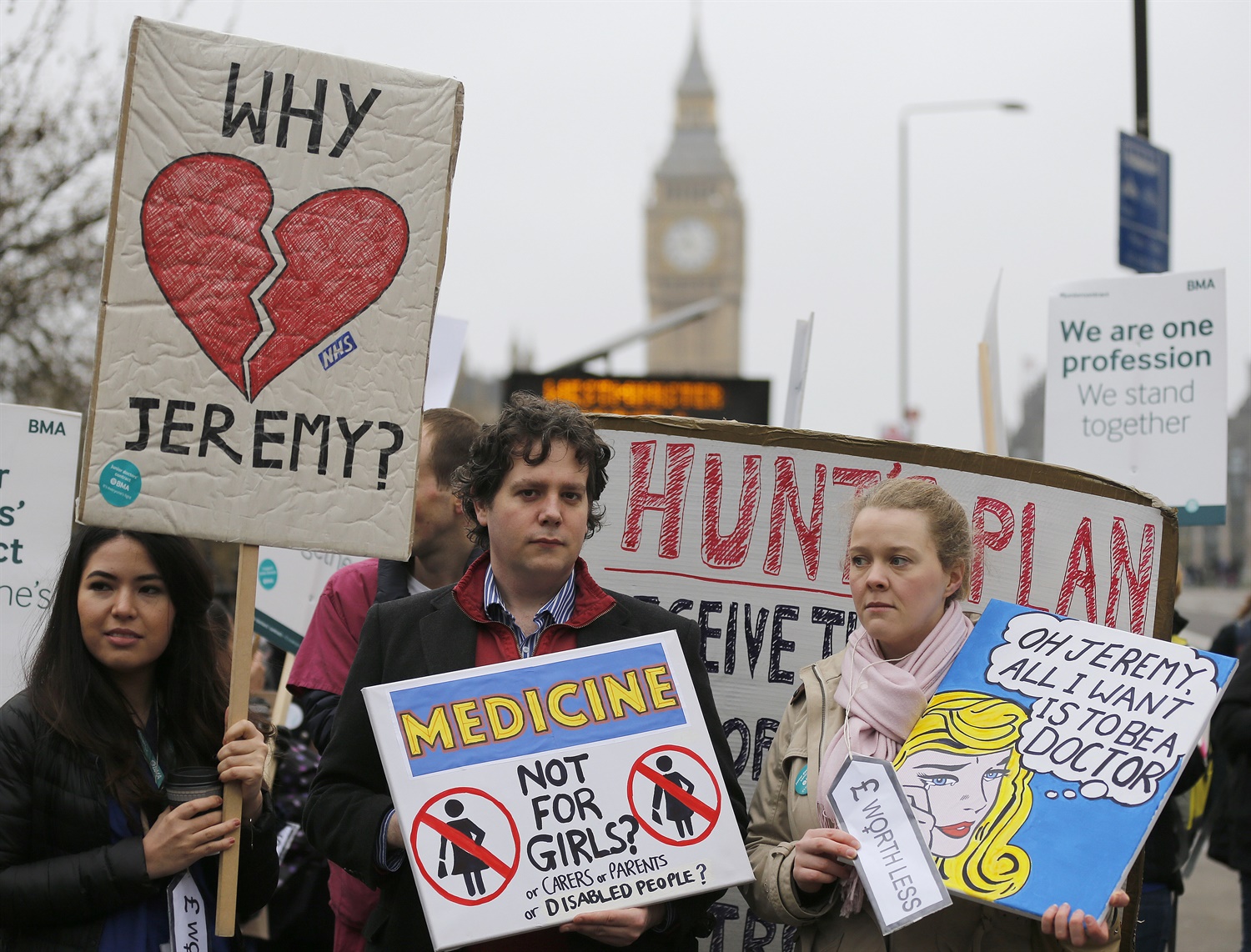06.04.16
Patients Association and RCPE back latest junior doctors' strike
The latest junior doctors’ strike over a controversial contract imposition, starting today, has received the backing of the Patients Association and the Royal College of Physicians of Edinburgh (RCPE).
The RCPE has also written to the chair of the House of Commons Health Select Committee calling for an inquiry into the contract.
Junior doctors began a 48-hour strike at 8am today in protest at the new contracts, which include reduced payment for working antisocial hours and an end to automatic pay progression for doctors the longer they have worked in the NHS.
In a letter to Dr Sarah Wollaston MP, the RCPE say that the contract, which has been criticised for increasing pressures on doctors, harming morale and discriminating against female and disabled doctors, will “jeopardise the future of the NHS” by making it harder to recruit and retain doctors.
Professor Derek Bell, president of the RCPE, said: “The college believes that an urgent inquiry by the Health Select Committee could help resolve the current impasse and restore stability within the junior doctor workforce in England.
“If we do not resolve this dispute, the impact on our patients, the NHS workforce and the long term sustainability of the NHS will be profound.”
The RCPE is asking for an inquiry into all issues around the contract and its long-term impact on staff wellbeing and patient care, and to look at alternative ways of dealing with the changing workforce.
 Junior doctors striking outside Homerton University Hospital. c. Stefan Rousseau, PA Wire
Junior doctors striking outside Homerton University Hospital. c. Stefan Rousseau, PA Wire
Patients Association oppose contract imposition
Katherine Murphy, chief executive of the Patients Association, said that health secretary Jeremy Hunt’s decision to impose the contract after negotiation with doctors failed to produce a resolution was a mistake.
Murphy said: “We do not believe that the imposition of a contract will be at all helpful in resolving this ongoing dispute. As such, we are glad to see that the imposition is being challenged.
“Junior doctors are the backbone of the NHS, and it is vital that they are able to provide the safe and effective care that patients need. Such a highly trained and valuable part of the NHS should not be disregarded so lightly. At a time when financing the NHS is already at breaking point, we should not further risk losing more doctors whose training is funded by the public purse.
“As the voice of patients, our priority lies in protecting patient and public safety, and we know that junior doctors have never taken lightly the decision to strike. Doctors have a very real concern that the imposed terms will stretch the existing resource too thinly and will threaten the quality of patient care.”
She added that the Patients Association was concerned that the contract imposition will discourage new doctors from entering the profession, making staffing shortages worse.
Two judicial reviews have been launched against the contract, one by the BMA on the grounds that it violates equality regulations and one by campaign group JustHealth on the grounds that it was introduced without proper consultation.
 Junior doctors strike outside St Thomas' Hospital. c. Frank Augstein, AP Photo
Junior doctors strike outside St Thomas' Hospital. c. Frank Augstein, AP Photo
NHS warns of cancelled operations as result of strike
Dr Anne Rainsberry, national incident director for NHS England, said: “We’ve already seen that a 48-hour strike puts considerably more pressure on the NHS and it’s deeply regrettable that thousands of patients are still facing disruption because of this recurring action.”
The Department of Health said that almost 25,000 operations have been cancelled as a result of the strike.
Dr Johann Malawana, chair of the BMA junior doctor committee, said: “We deeply regret any disruption this action will cause to patients, but it is because we believe this contract would be bad for the delivery of patient care in the long term that we are taking this action.
“By imposing a contract that junior doctors have no confidence in and refusing to re-enter talks with the BMA, the government has left us with no choice.”
Doctors have previously held 24-hour strikes in January and February this year and the first 48-hour strike in March.
If the Department of Health does not resume talks, the next strike on 26 April will involve full withdrawal of labour, including emergency service cover, for the first time.
(Image: picket line outside Bristol Royal Infirmary, c. Ben Birchall from PA Wire and Press Association Images)